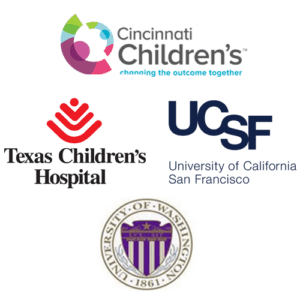Timeframe: 2023 – 2025
Goal: Understand the true incidence, accuracy of diagnosis, and optimal treatments for FLC
Principal Investigator: Roshni Dasgupta, MD of the Cincinnati Children’s Hospital Medical Center
Co-investigators:
- Soo-Jin Cho, MD, PhD of the University of California, San Francisco
- Kimberly Riehle, MD of the University of Washington
- Dolores López-Terrada, MD, PhD of Texas Children’s Hospital

Study overview: In previous work, the Pediatric Surgical Oncology Research Collaborative (PSORC) collected and analyzed detailed records of 262 patients under age 20 diagnosed with hepatocellular cancers, assembled from 19 different hospitals and covering the years 1990 to 2017. This represents the richest available source of data on pediatric liver cancers. They found that 119 (45%) of the tumors had been classified as FLCs, 110 (42%) as conventional HCCs, and the remainder mainly as “hepatocellular neoplasms-not otherwise specified” (HcN-NOS) (12%). The latter tumors are generally hepatoblastomas (a distinct class of liver cancer most often seen in very young children), but with some features of HCC. However, the classification of each tumor in the collection was based on the diagnosis originally made at the treating hospital.
Because evidence suggests that FLC is frequently misdiagnosed in clinical practice, the PSORC team requested funding from FCF to carry out centralized pathology review of the 262 tumors to confirm the actual number of FLC cases versus other types of liver cancers. They also proposed to carry out molecular analyses of the tumors using methods that were not yet readily available in hospital labs when the bulk of the specimens were initially assessed.
The goals of the study are to:
- Determine the accuracy of diagnosis of FLC vs HCC in pediatric patients. Expert pediatric liver pathologists, led by Dr. Soo-Jin Cho (UCSF), will carry out a centralized histopathologic review of specimens curated within the PSORC multi-institutional database, of which approximately 45% are FLC based on initial diagnoses at the contributing hospitals.
- Perform molecular analysis of pediatric FLCs, HCC, and HCN-NoS. Studies led by Dr Lola López-Terrada (Texas Children’s Hospital/Baylor) will apply the current state-of-the-art standard for molecular pathology of FLC, including:
- Immunohistochemistry for CK7 and CD68
- Confirmation of the DNAJB1-PRKACA gene fusion by nucleic acid sequencing (primarily of spliced mRNA) and/or a microscopy-based method (fluorescence in situ hybridization).
If successful, the study could:
- Confirm the histological classification of FLC versus other rare liver cancers found in the same age group, and correct errors likely to exist in the valuable Pediatric Surgical Oncology Research Consortium liver tumor collection and database. This will guide the standardization of identification of FLC by local pediatric pathologists. It also will reinforce the recognition of FLC as a distinct disease which should be clinically managed in that way.
- Lay groundwork for personalized molecular analysis of FLC that is likely to provide more accurate prognoses and point to the most appropriate treatment strategy for each individual patient.
- Provide important supporting evidence for ongoing efforts to obtain a unique ICD-10-CM code for FLC.
